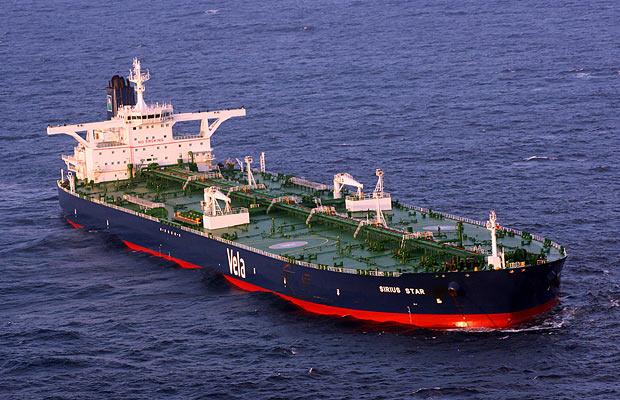Iran’s oil minister has said according to Geneva Joint Plan of Action, foreign oil tankers could easily enter Iran’s oil terminals.
Bijan Namdar Zanganeh told Mehr News that his ministry would finish the development of different phases of South Pars fields by 2017. “Geneva Joint Plan of Action posed no restrictions on insuring oil tankers entering Iran’s waters and ports to carry Iran’s oil to importing countries by world insurance giants,” Zanganeh added.
In line with developments in Geneva, a foreign oil tanker will enter Iran’s ports for the first time since sanction relief covered by Western insurance companies; it is Alexandra-1 tanker ship owned by Transland Bulk Carriers Ltd., under the coverage of insurance provided by West of England P&I Club, which entered Assaluyeh in July 25 and harbored in Kharg to load LNG.
Zanganeh pointed to new oil export agreements in 2015. “Iran would not limit its exports to any certain figure, and would continue to export amounts of oil decided by the government policies,” added the oil minister.
On ministry’s plan for seeking a way out of economic recession, he cited rises in gas exports as possible scenarios. “With increased gas production and provision to industry and power plants, we could export up to $5bn in oil products in the current year and $12bn next year,” Zanganeh said.
This week the Oil Ministry delivered a report to Parliament Planning and Budget Committee in which it announced exports of crude oil and gas condensates worth up to $7.9bn in the first four months of the year. “In the same period, $13bn of Iran’s oil income has been unfrozen,” said the minister, and that “we have planned to raise Iran’s natural gas production 200 million cubic meters per day by the next two years.”
Zanganeh predicted that South Pars field project would be finished by 2017. “The priority set for production from shared fields in South Pars would bring about a decline in fuel consumption in industry and power plants which help the economy out of the recession.”
